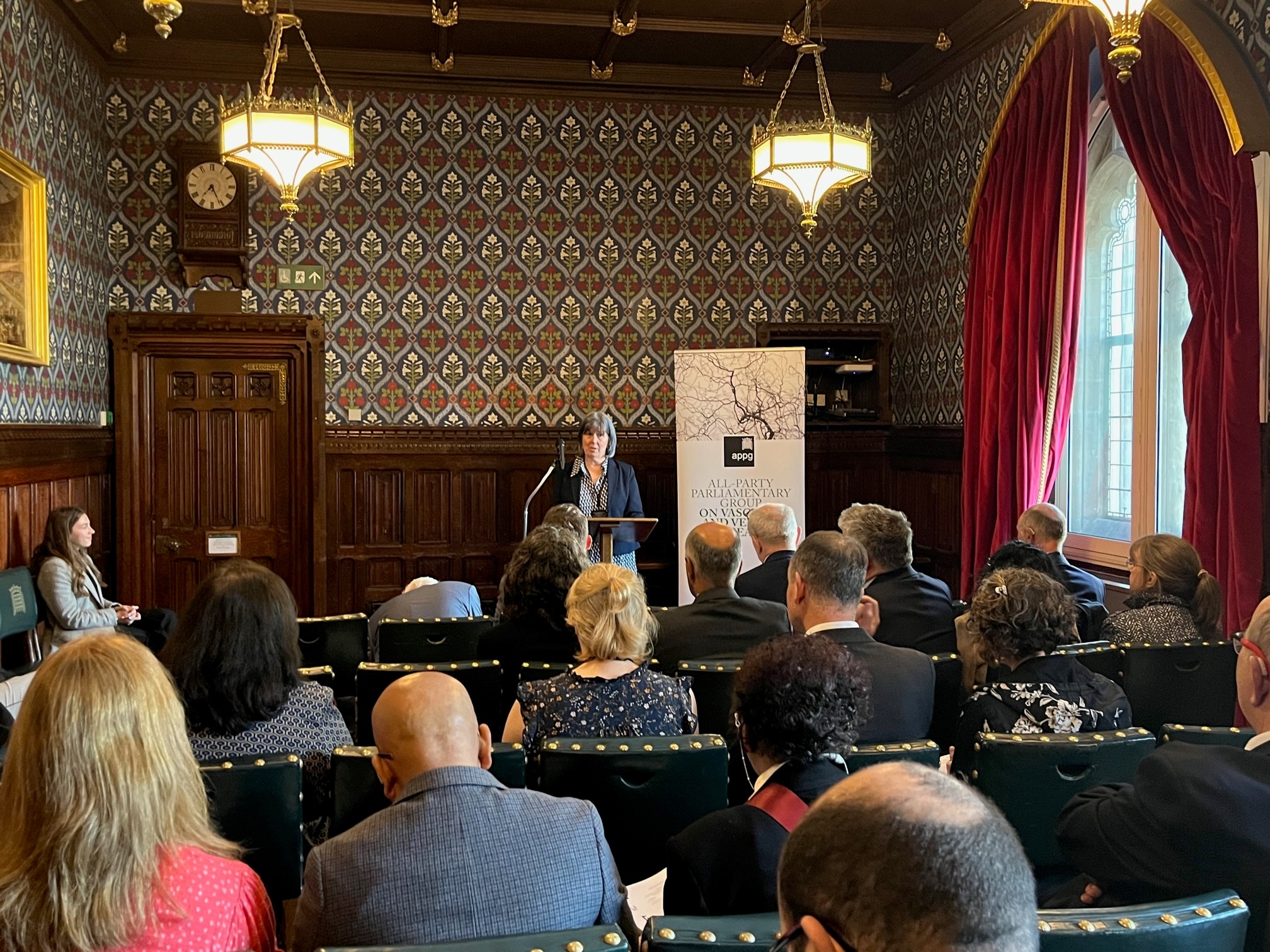National Wound Care Strategy Programme Director, Dr Una Adderley shares her thoughts on the recommendations made in the latest report from the All-Party Parliamentary Group on Vascular and Venous Disease.
The All-Party Parliamentary Group (APPG) on Vascular and Venous Disease is a cross-party group of MPs which focuses on raising awareness of vascular and venous disease; encouraging research into the causes; advancing excellence and innovation; and informing parliamentarians of the work of medical professionals and how they can be helped to provide better services to patients.
The National Wound Care Strategy Programme (NWCSP) team works with the vascular and venous disease APPG as part of our commission from NHS England to improve care for people with leg and foot ulcers.
We have developed a strategy that includes:
- Improving the knowledge and skills of those health and care professionals who care for people with leg and foot ulcers.
- Improving the clinical pathways so that patients can get the right care from the right people as soon as possible.
- Improving our clinical data so clinicians and patients have good quality information to inform care and providers of services have the information they need to monitor and improve the quality of their services.
We view leg and foot ulceration as a long-term condition which benefits from being a partnership between the patient and their clinicians.
So, our work is being developed in partnership with patients and carers to ensure that their needs and preferences are at the heart of all of our recommendations.
The COVID-19 pandemic forced us to deliver care in different ways but one piece of useful learning was that there was a greater appetite for supported self-care in wound care than we had previously realised. Many patients and their carers want to be responsible for their day-to-day care, if possible.
- Patients tell us they like not having to attend clinics or wait for the nurse to visit.
- Patients like being able to have a shower when they want to, rather than having to schedule this around appointments for dressing changes.
- Really importantly, patients like understanding their condition and being more in control.
Supported self-care means better-informed patients who can be more proactive in their care, while reducing the pressures on very busy services. It’s a win-win!
The NWCSP fully supports the concept of supported self-care and is working hard to ensure that patients get early diagnosis and treatment so that as many patients as possible will be suitable for supported self-care.
We fully support the call for patients to be supported to become equal partners in, rather than simply recipients of, care.
We welcome the recommendations in this report for the Government, NHS England, Clinical Educators, the new Integrated Care Systems and individual clinicians to support the implementation of the NWCSP’s Lower Limb Implementation proposals, and hope that this will become a priority from 2024 onwards.

